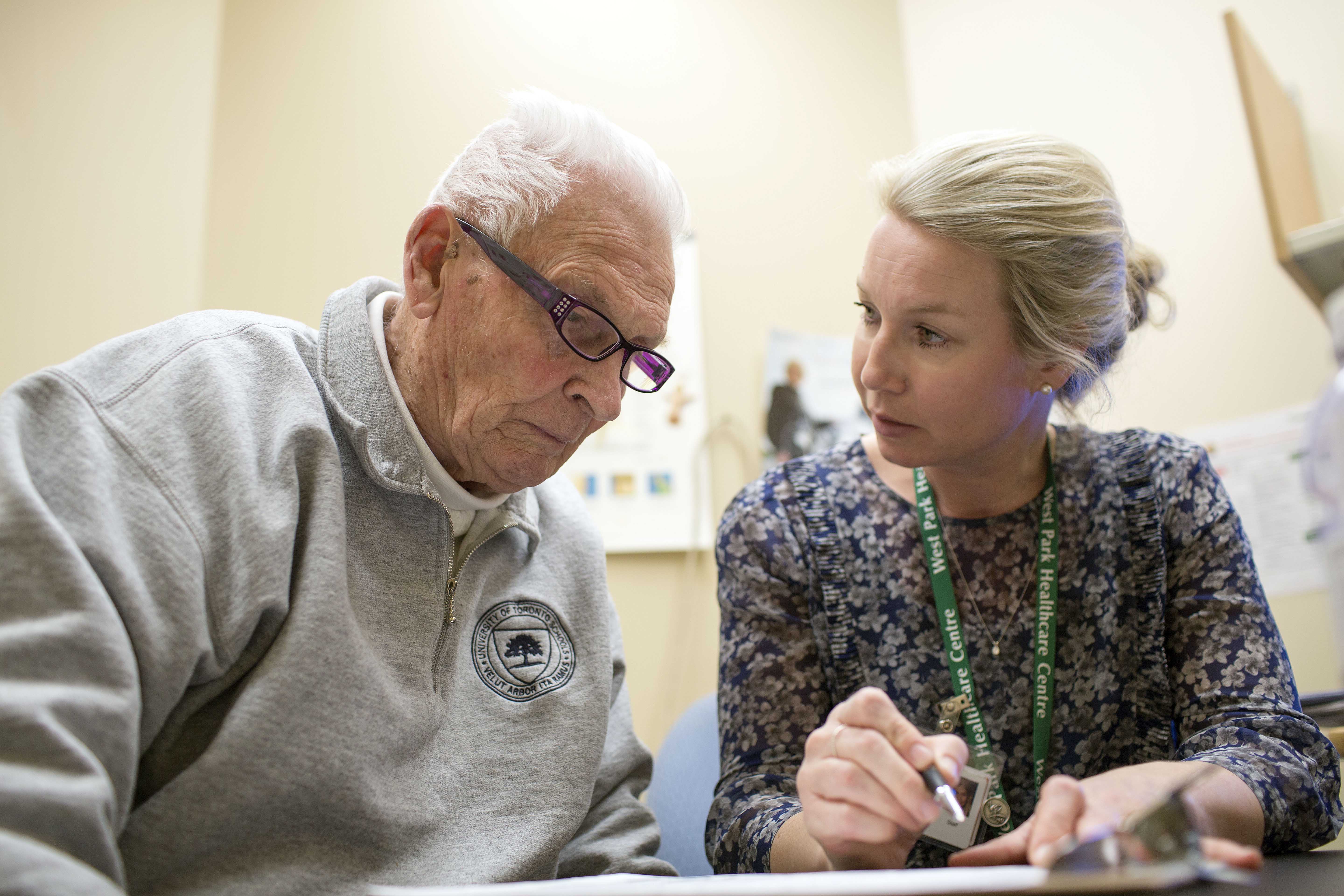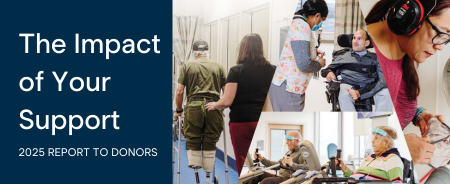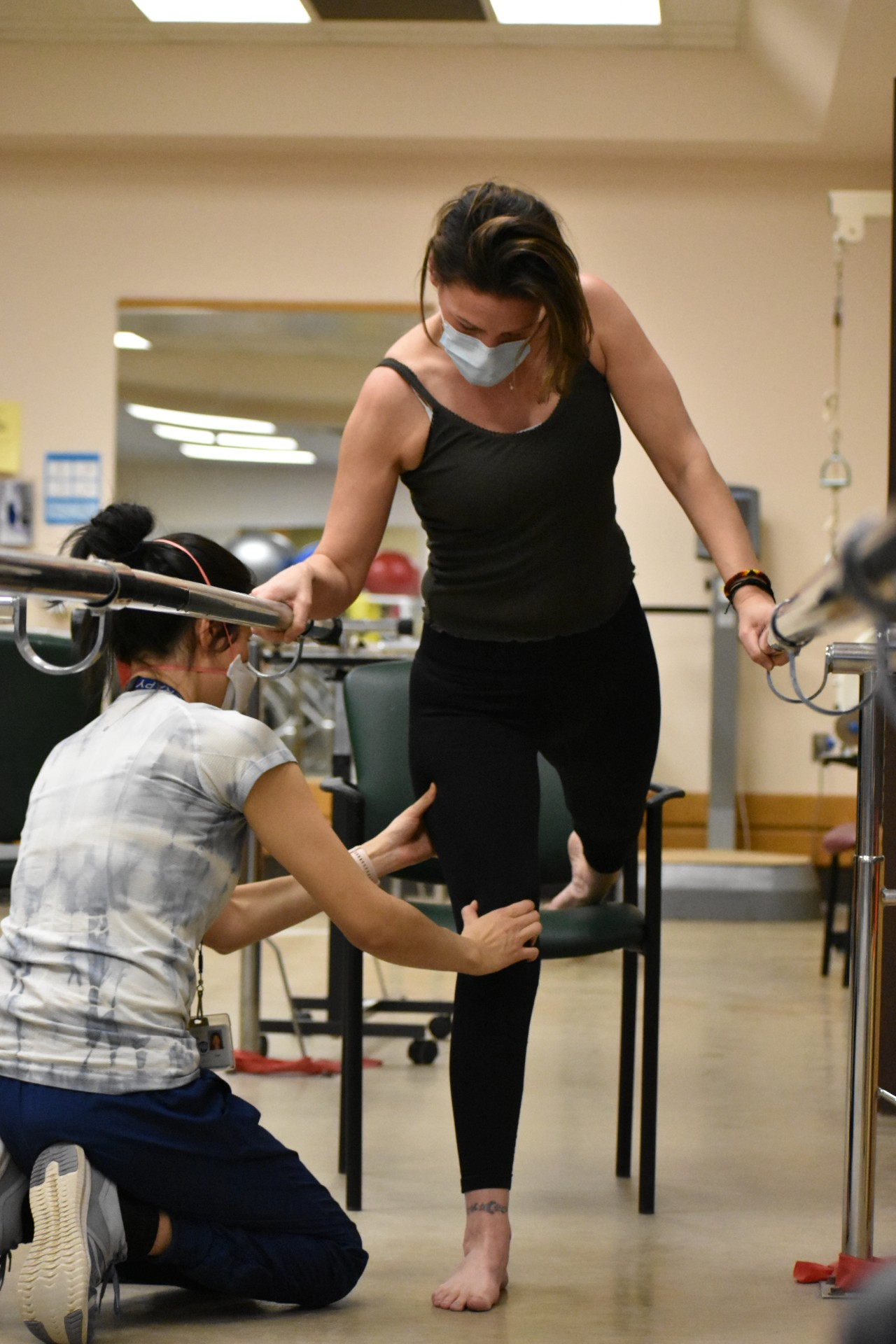
Healthy Aging
Services for Seniors at UHN’s West Park Healthcare Centre
Seniors’ Services at West Park Healthcare Centre provide a continuum of geriatric care. 
Under the leadership of Dr. Jamal Depradine, Physician Lead, Geriatric Medicine at West Park, we offer a number of innovative programs to help keep older adults active, vibrant and independent in their own homes. In particular, inpatient rehabilitation programs designed to help patients improve their functional abilities in order to return home and a specialty outpatient geriatric assessment clinic to help individuals navigate the healthcare system and maximize their level of independence and quality of life. Our Seniors Mental Health Outreach team offers mental health supports to older adults from the comfort of their own homes.
Learn more about West Park’s programs for seniors.
Read about our innovative Geriatric Day Hospital.
Find more resources for seniors.
Learn more about how you can maintain your physical and mental health, and your independence, as you get older:
Maintain a Healthy Diet
Healthy eating is always a good idea, but for seniors it is an especially important way to facilitate healthy aging. Good nutrition can help with memory, mood, sleep, bone and muscle mass, heart health and immunity.
Appetite can decrease with age along with an interest in food. Older adults with cognitive impairments may even forget to eat at times. Additionally, one’s sense of thirst may decline leading to an increased risk of dehydration.
Spice up your appetite by trying a Mediterranean diet; enjoying a variety of foods from each food group, including protein; and drinking plenty of fluids to maintain hydration. Take a look at the Canada Food Guide for tips on healthy eating.

Stay Fit, Active and Connected
Staying active can help seniors to remain healthy and independent for a longer period of time. Regular exercise helps improve balance, prevent falls and reduce the risk of chronic illness.
People aged 65 years or older should participate in at least 2.5 hours of moderate to vigorous aerobic activity each week. This can be easily achieved in 10 minute sessions throughout the week. Adding muscle and bone-strengthening exercises can also help improve balance and posture.
Build movement into daily activities by:
- Walking to nearby stores,
- Walking to the post box,
- Getting off the bus one stop early,
- Slow bouncing on toes while dishwashing,
- Moving arms and legs even when you’re sitting down or lying in bed.,
- Picking hobbies for their movement potential e.g. swimming, dancing, or hiking
Staying connected and social contributes to good overall physical and mental health. Try an exercise class at a local church or seniors centre.
Work Your Brain
Keep your brain active and challenged to maintain your brain health. Maximize cognitive stimulation by reading the newspaper daily, trying crossword puzzles, Sudoku, or learning a new skill. You could consider scheduling activities such as regular games nights with family or friends. Activities that involve thinking, planning and memory are beneficial.
Here are some additional ways to maximize cognitive stimulation:
- Be social and stay connected. You could volunteer, join a local community organization or take a class.
- Change your routine. Take a new route home, shop at a different grocery store or meet up with a friend you haven’t seen in a while.
- Read, write, do word or number puzzles. Join a card game. Start a jigsaw puzzle. Choose something you like to do! Play!
- Build a model or start a knitting project.
- Visit your local public library. Talk to the library staff‑ about lectures, courses or book home-delivery.
- Manage stress levels. Chronic stress is not good for brain health. You can reduce stress levels by: exercising, writing in a journal, using relaxation techniques such as mindfulness, breathing techniques and staying positive.
Good Mental Health
Taking good care of your mental health is just as important as your physical health, especially as you age. For older adults, poor mental health can negatively impact physical health, relationships and can lead to isolation. Depression in the elderly population is as common as other leading chronic health problems such as diabetes and heart disease.
If you or your parents are experiencing a depressed mood, anxiety or nervousness, they should consult a healthcare professional. You can learn more about West Park’s Seniors Mental Health Service at uhn.ca/West_Park.



